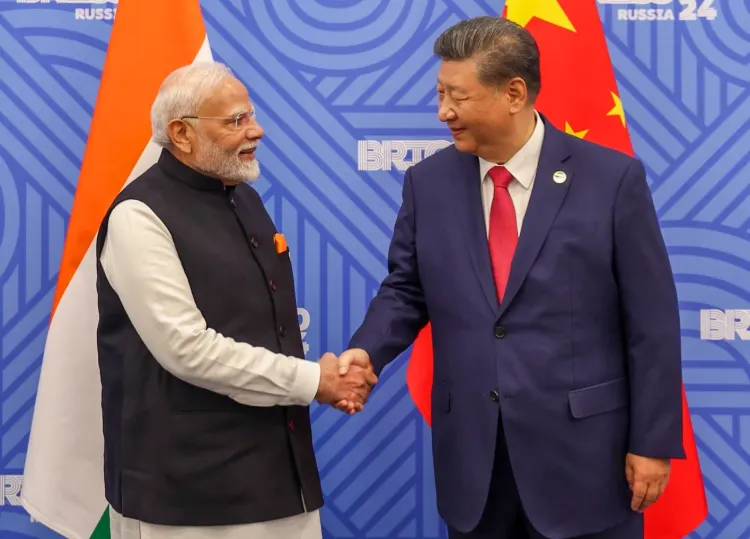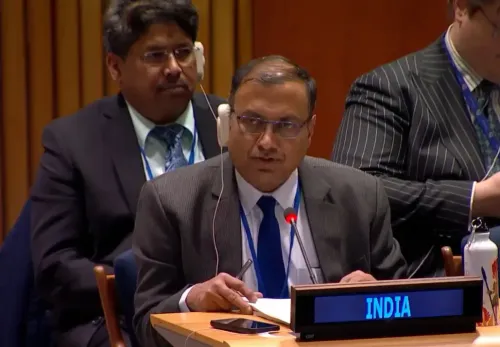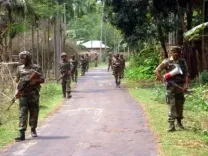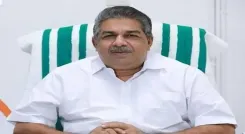What Does China Expect from PM Modi at the SCO Summit in Tianjin?

Synopsis
Key Takeaways
- China welcomes PM Modi for the SCO Summit.
- Expectations of solidarity and friendship from the summit.
- Over 20 countries to participate, marking a significant gathering.
- Potential for improved Sino-Indian relations post-Galwan.
- Focus on addressing terrorism concerns.
Beijing, Aug 8 (NationPress) — China expressed its enthusiasm for Prime Minister Narendra Modi's upcoming participation in the Shanghai Cooperation Organization (SCO) Summit, set to occur in Tianjin later this month.
During a routine media briefing in Beijing, Chinese Foreign Ministry Spokesperson Guo Jiakun stated, "China welcomes Prime Minister Modi to China for the SCO Tianjin Summit. We believe that through the collective efforts of all parties, this summit will serve as a platform for solidarity, friendship, and fruitful outcomes, propelling the SCO into a new era of high-quality development characterized by enhanced solidarity, coordination, dynamism, and productivity."
China will host the SCO Summit in Tianjin from August 31 to September 1 this year, expecting participation from leaders of over 20 countries, including all SCO member states and heads of 10 international organizations. According to Guo, this summit is anticipated to be the most significant gathering in the history of the SCO.
Reports indicate that PM Modi's visit to China for the SCO Summit marks his first trip to the nation since the tense Galwan clash in 2020, which significantly impacted bilateral relations.
Previously, PM Modi visited China in 2019 and had a meeting with Chinese President Xi Jinping during the BRICS Summit in Kazan, Russia, in 2024.
The recent breakthrough in bilateral discussions, the first since the Galwan Valley incident, was facilitated by an agreement between New Delhi and Beijing on patrolling along the nearly 3,500-km Line of Actual Control (LAC), effectively concluding four years of border confrontations.
In July, External Affairs Minister (EAM) S Jaishankar visited China for the SCO Council of Foreign Ministers meeting in Tianjin, where he engaged in discussions with his Chinese counterpart, Wang Yi, and met with President Xi Jinping alongside other SCO Foreign Ministers.
Earlier in June, Defence Minister Rajnath Singh attended the SCO Defence Ministers Meeting in China, where India declined to endorse the joint declaration due to the omission of terrorism concerns, highlighting a significant issue that was not acceptable to a specific country. Singh had productive discussions with his Chinese counterpart, Admiral Don Jun, focusing on bilateral relations.
National Security Advisor (NSA) Ajit Doval also participated in the 20th meeting of the Security Council Secretaries of the SCO Member States in Beijing, emphasizing the importance of overcoming double standards in combating terrorism and advocating for decisive actions against UN-designated terrorists and their affiliates.
The SCO, established on June 15, 2001, in Shanghai, is a permanent intergovernmental organization comprising India, Iran, Kazakhstan, China, Kyrgyzstan, Pakistan, Russia, Tajikistan, Uzbekistan, and Belarus.










